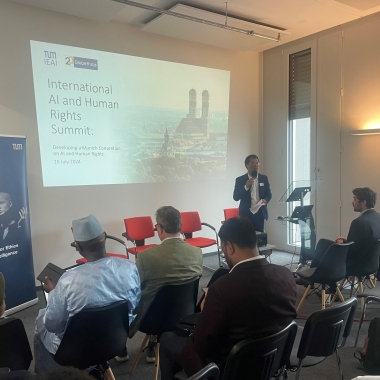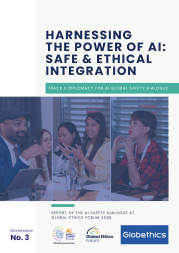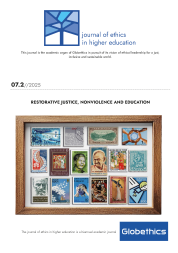AI and Human Rights Summit concludes successfully in Munich
The International AI and Human Rights Summit, organised by Globethics and the Institute for Ethics in Artificial Intelligence at the Technical University of Munich (TUM), concluded with resounding success in Munich, Germany on 16 July 2024.

The summit served as a vital platform to explore the intricate dynamics of the global debate on AI and human rights. Over 50 experts from diverse sectors - including public and private organisations, civil society, and academia - gathered from five continents to participate in the discussions.
"The AI and human rights discussion is timely not only to operationalise AI ethics from the human rights lens, but also to address emerging human rights challenges in the age of AI," remarked Wallace Cheng of Globethics during the opening session.
Among the key takeaways reported by the workshop participants were:
- Progress in AI ethics: Significant strides have been made in the AI ethics discourse, including the development of new AI regulations. However, a global consensus on the safe and ethical utilisation of AI technologies remains elusive across both public and private sectors.
- Inclusive human rights: Human rights considerations must encompass everyone, including both technology producers and consumers, regardless of their geographical location or identity.
- Global regulatory efforts: While regulatory measures like the EU AI Act are crucial for protecting human rights in the AI context, there is a pressing need for global approaches to address these worldwide challenges, especially with inputs from the majority world.
- Unified language: A common language is essential for effective communication on AI ethics. The recent publication, "Artificial Intelligence and Human Rights: Recommendations for Companies," emphasises the importance of the UN Guiding Principles on Business and Human Rights for incorporating AI into corporate human rights due diligence.
- Diverse perspectives: It is vital to include a broad spectrum of voices in the AI and human rights debate, from indigenous groups to major tech companies and future generations.
- Balancing risks and opportunities: While the summit rightly focused on the human rights risks associated with AI, it is equally important to highlight the potential opportunities that AI presents.
Globethics looks forward to continuing collaboration with likeminded individuals and institutions to develop a more inclusive and ethical use of AI for the benefit of all.


